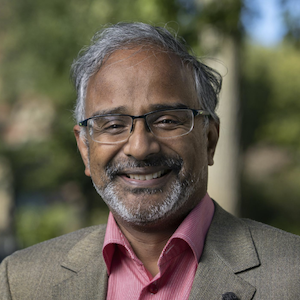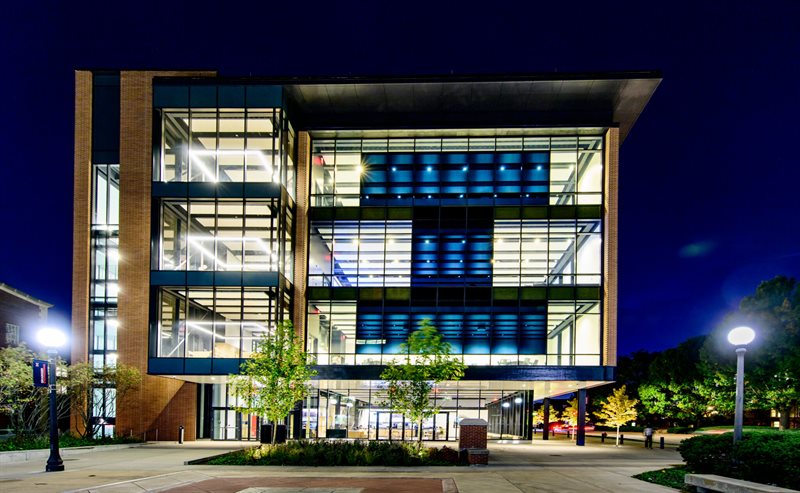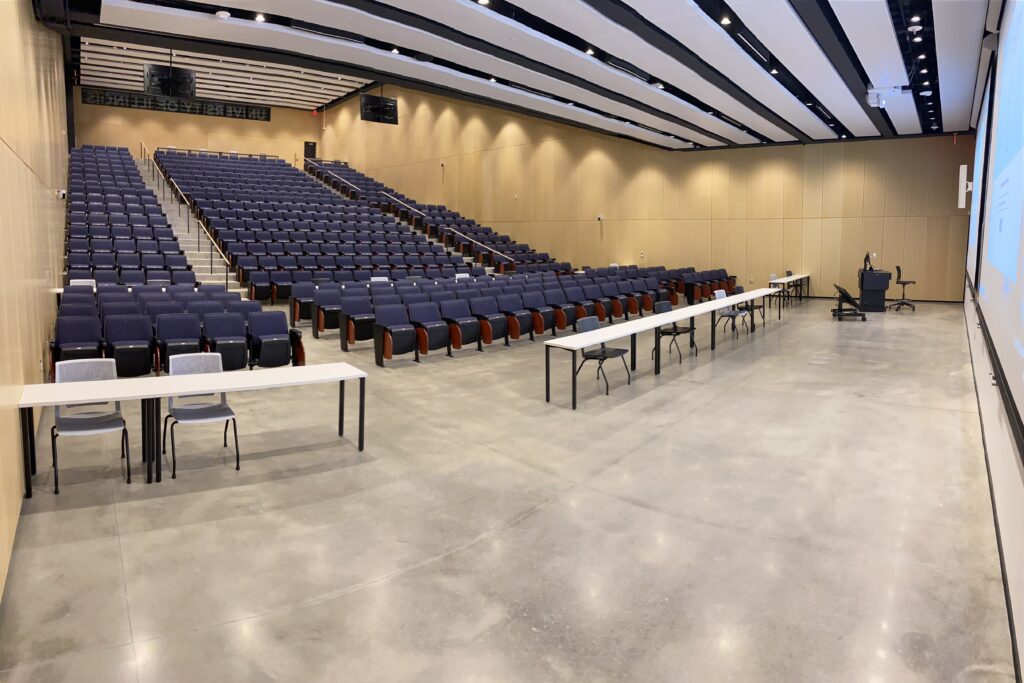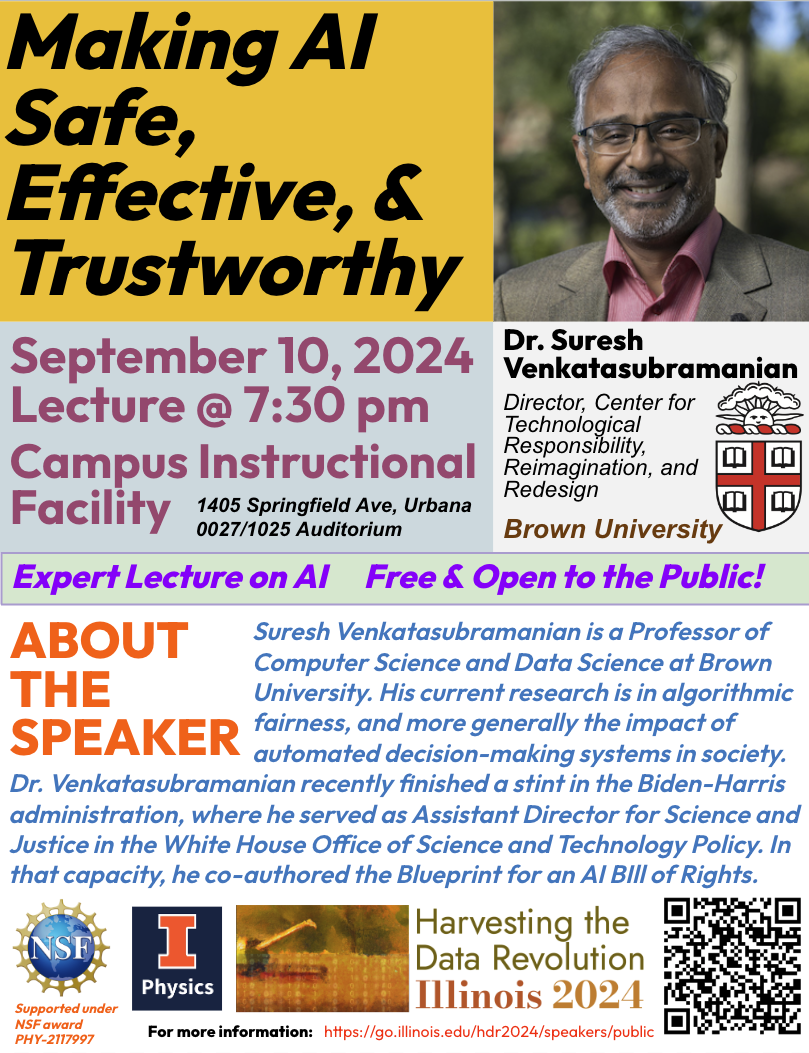Dr. Suresh Venkatasubramanian#
Professor of Data Science and Computer Science
Director of the Center for Technological Responsibility, Reimagination, and Redesign
Brown University

About the presentation#
Making AI Safe, Effective, and Trustworthy
The data revolution has been replaced by the AI revolution. It seems that every day, we hear about a new area of human endeavor that has been conquered by AI. There are AI lawyers, AI doctors, AI artists, poets, and mathematicians. AI will predict what jobs we get, what medicines we should be treated with, and even how we should be educated.
If that’s true, then AI policy should consist of getting the government out of the way and letting innovation bloom. Indeed, that is what some advocate. But in fact, sound AI policy rests on the same principles that sound science rests on: openness, transparency, and evidence. In order to ensure that all of us can benefit from innovations in AI, the best ideas in AI policy emphasize openness in research, transparency and accountability in the claims made by those seeking to deploy it, and above all a requirement that claims – bold claims at that – of efficacy are backed up by evidence that can be independently evaluated.
In this talk, I’ll talk about how AI policy is trying to harness the AI revolution so that all of us, including those who have been traditionally left behind by tech innovation, can lead lives enriched rather than controlled by technology.
About the speaker#
Suresh Venkatasubramanian directs the Center for Technological Responsibility, Reimagination, and Redesign (CNTR) with the Data Science Institute at Brown University, and is a Professor of Computer Science and Data Science. Suresh's background is as a computer scientist and his current research interests lie in algorithmic fairness, and more generally the impact of automated decision-making systems in society.
Suresh recently finished a stint in the Biden-Harris administration, where he served as Assistant Director for Science and Justice in the White House Office of Science and Technology Policy. In that capacity, he helped co-author the Blueprint for an AI BIll of Rights.
Prior to Brown University, Suresh was at the University of Utah, where as an assistant professor he was the John and Marva Warnock Assistant Professor. He has received a CAREER award from the NSF for his work in the geometry of probability, a test-of-time award at ICDE 2017 for his work in privacy, and a KAIS Journal award for his work on auditing black-box models. His research on algorithmic fairness has received press coverage across the globe, including NPR’s Science Friday, NBC, and CNN, as well as in other media outlets. He is a past member of the Computing Community Consortium Council of the CRA, spent 4 years (2017-2021) as a member of the board of the ACLU in Utah, and is a past member of New York City’s Failure to Appear Tool (FTA) Research Advisory Council, the Research Advisory Council for the First Judicial District of Pennsylvania and the Utah State Auditor’s Commission on protecting privacy and preventing discrimination. He was recently named by Fast Company to their AI20 list of thinkers shaping the world of generative AI.
Location#
Campus Instructional Facility
1405 W Springfield Ave, Urbana, IL 61801 Map

Room location: 0027/1025 Auditorium


